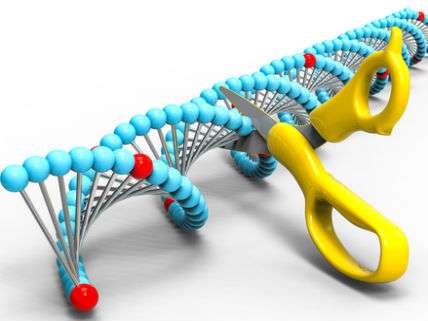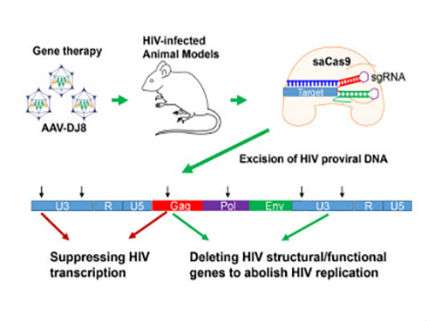CRISPR and the Dawn of the New Biotech Revolution
Cures for HIV/AIDS and specifically targeted antibiotics

CRISPR genome editing will transform biotechnology and our lives in the next decade making possible (and cheap*) all kinds of new cures, new crops, new livestock, new industrial processes, and new ways to manage the environmental commons. Just two years ago, Science hailed CRISPR as the scientific breakthrough of 2015 noting, "It's only slightly hyperbolic to say that if scientists can dream of a genetic manipulation, CRISPR can now make it happen." Researchers have tweaked CRISPR so that it can find and cut and, if desired, replace essentially any DNA sequence in an organism's set of genes, including those in human beings.
With regard to new cures, researchers at the Lewis Katz School of Medicine at Temple University and the University of Pittsburgh have just published results in which they used CRISPR to almost entirely eliminate HIV, the virus that causes AIDS, from living experimental animals. Basically, the researchers targeted segments of HIV genes using CRISPR loaded into a viral delivery system that inactivated the HIV genes. Temple University researcher Kamel Khalili said, "Our eventual goal is a clinical trial in human patients."

Another group of researchers announced last week that they are developing a pill that would use CRISPR to target specific microbial pathogens. The idea is that a CRISPR antibiotic pill would instruct harmful bacteria to shred their own genes to bits. The researchers have engineered CRISPR to contain bits of genomic DNA of Clostridium difficile into bacteria-killing viruses called bacteriophages. The next step is to package the engineered phages into Lactobacillus bacteria. Found in yogurt, Lactobacillus would survive passage through the human digestive tract while shedding CRISPR phages that infect and then destroy the targeted pathogens. Unlike current antibiotics, CRISPR pills would kill only the targeted pathogens, leaving benign microorganisms alone.
*Cheap, if the Food and Drug Administration regulators don't stand in the way. The initial signs are not good.


Show Comments (24)